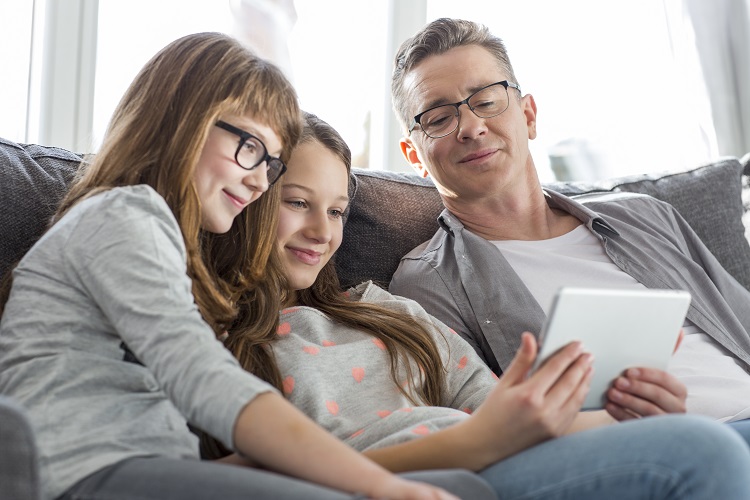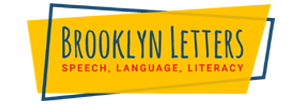Download our FREE What Are Learning Pods Pamphlet!
With coronavirus cases still rising in the country and many places across the globe, schools and parents turn to alternative learning methods for the coming school year. Over the past months, parents have taken the role of educators following school closures. And as we head into the new school year, parents now have several learning options for their children. This includes traditional homeschooling, remote classrooms, blended learning, and recently, learning pods or pod learning.
However, this presents another problem. Most schools are not prepared to welcome students back in the fall under the varied current options. Meanwhile, parents continue to be overwhelmed as the new school year approaches, which is why many of them have turned to pod learning as one way to mitigate the effects of Covid-19 on education.
What Are Learning Pods?
Simply put, learning pods are small groups of families whose children gather in a shared space or online for supplementary learning. Homeschool families traditionally use pods so children can socialize and interact with other homeschooled students.
Learning pods are typically conducted in one of the participating family’s homes. Instruction often comes in the form of a private tutor or teacher. But sometimes, parents themselves take turns in teaching the children.
While learning pods are not entirely new, it has become one of the solutions adopted by parents who want to make sure the current health crisis does not hurt their children’s academic growth even further.
Why Parents Are Opting for Learning Pods
With school closures forcing students to finish this past school year at home, many families were thrust into remote learning for the first time. And the consensus over this drastic change has not been favorable.
Last spring, many families voiced their struggle with online or remote learning. Apart from the challenge of having to overhaul work and daily schedules, parents often reported this transition to be stressful.
We have seen parents grapple with the challenge of keeping their children engaged in schoolwork while ensuring mental and emotional support. Initial studies have also shown us that even with efforts to beef up remote learning, students still face higher learning loss risks. And although some schools have drawn-up measures to facilitate blended and in-person classes in the fall, safety remains a concern.
But pulling children out of schools entirely also comes with its own set of concerns. For starters, some parents are not confident with their ability to provide adequate academic instruction to their children. And then, there is the issue of socialization, which is crucial in child growth and development. And for most parents, online-based education will not be able to provide enough interaction or replace hands-on instruction. Child care is also another major problem, especially for working parents whose schedules rely on their children’s time at school.
Now that families have to prepare for a full school year during an ongoing pandemic, it is, understandably, making parents worry. As such, the sudden popularity of learning pods comes as no surprise. If the numbers of students are low in each pod, this will be a great solution. And if safety is still a concern, online pods will become increasingly popular.

The Rise of “Pandemic Pods”
With most schools opting to either go fully remote or implement a blended learning system in the fall, learning pods (or “pandemic pods,” in light of the worldwide health crisis) offer students a semblance of what school used to be, all while alleviating parents’ concerns over safety, child care, and academic progress.
Parents rallying for learning pods see it as the best option to limit their children’s exposure to possible health risks. It also allows kids to have the chance to foster friendships and build social skills. And most importantly, learn and have fun in an intimate, more controlled setting.
Learning pods offer an effective way to stem learning loss, guarantee safety, and even a break from parenting responsibilities. However, not all families are as privileged.
Some argue that learning pods widen the educational gap and cause students from lower-income families to fall further behind. And while these concerns are undoubtedly valid, it is also easy to see why pod parents find pod learning appealing.
In an article by Jessica Calarco, associate professor of Sociology at Indiana University-Bloomington, she mentions how learning pods address three critical problems when classes move online. These include:
- Ensuring hands-on or in-person instruction and support, which is critical for some students
- Giving working parents necessary childcare support during the day
- Providing social interaction for children
Calarco presented several suggestions to help level the playing field for all students. But until school and government authorities can implement a more equitable learning method, learning pods will continue to be the most viable option for families who have the means and resources to organize one. Parents will have to rely on themselves.

How Learning Pods Work
One of the advantages of learning pods is that there are no set rules on how it should operate. Everything is determined by the parents who organize it and the common goals they want to achieve. Some learning pods have students enrolled in the same school and attend online or video-based classes together. In other cases, parents take their children out of school and opt for full-time pod learning instead.
Learning pods may have in-person sessions while others limit their classes to online instruction. In some groups, parents hire a tutor or experienced teacher to teach and oversee students. This is arguably one of the best ways to conduct pod learning. Having a teaching professional ensures that your children receive proper guidance and adequate hands-on instruction.
Whether your learning pod aims to supplement school-based curriculum or provide full-time instruction, it is crucial to provide your children with the best support to ensure optimum academic growth.
Fortunately, Themba Tutors and Brooklyn Letters are prepared to offer you tutoring services for all your pod learning needs. We provide in-home and live online pods as well as one-on-one in-home and online tutoring sessions.
Themba Tutors is a New York-based private tutoring company that offers fun, individualized, and dynamic tutoring and coaching services for children and teens. We work one-on-one with students of all ages and provide multidisciplinary, personalized services.
Composed of traveling learning specialists, academic tutors, and executive functioning coaches, Themba Tutors provides in-home and online services in New York City, Nassau and Suffolk Counties, Long Island, Westchester County, Fairfield County, Connecticut, and sections of New Jersey.
Brooklyn Letters offers in-home and online literacy (Orton-Gillingham Approach) and math tutoring services and speech, language, and feeding therapies in the New York City metro area seven days a week.
Our private-pay online and doorstep speech-language feeding therapy, reading services (Orton Gillingham, Wilson, etc.), and math tutoring for all ages and for all skills are individualized and adapted based on your child’s and peers’ needs.
We offer the following services:
- Online Services
- Orton Gillingham Approach
- Writing and Speaking Intervention
- Writing Intervention
- Comprehension – Listening and Reading Intervention
- Reading Comprehension Tutoring
- Decoding and Encoding
- Reading Fluency Services
- Spelling Intervention
- Vocabulary Intervention
- Math Tutoring
Get in touch with us today at:
Themba Tutors
(917) 382-8641 / (201) 831-9848
Brooklyn Letters
(347) 394-3485
(917) 426-8880
Text: (917) 426-8880
Watch this video for a full rundown of what learning pods are!
Craig Selinger
Latest posts by Craig Selinger (see all)
- Private-Pay NYC SETSS: Special Education Teacher Support Services - June 29, 2022
- 7 Do’s and Dont’s of Teaching Self-Control to Young Children - June 11, 2022
- 8 Tips to Help Parents Practice Positive Parenting - June 11, 2022

